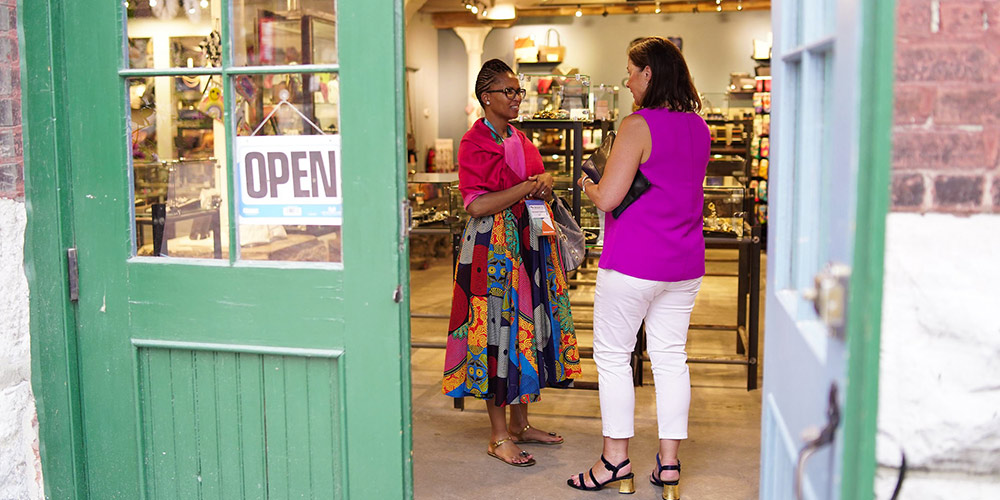According to the World Bank, women typically reinvest 90 percent of their income back into their families and communities. So, it would seem in the best interest of cities to support female entrepreneurs.
Yet, World Bank’s research also shows that only 30 percent of formal small and medium enterprises around the world are owned and run by women.

To help governments and policymakers enable more women entrepreneurs, Dell has launched new diagnostic tools built on the findings of our 2017 Women Entrepreneur Cities (WE Cities) Index.
Specifically:
- WE City Blueprints – Measures a cities operating and enabling environments against 72 indicators and provides recommendations on how to better enable women entrepreneurs to succeed.
- WE City Capital & Technology Deep Dives – Capital and technology are both critical for scaling any business, but women face unique challenges with both. This analysis provides insights, best practices for cities to improve access to both.
- WE Cities Manifesto – Based on both the quantitative and qualitative Dell WE Cities Index, this is a set of policy and leadership recommendations that will help women entrepreneurs start and scale businesses.
WE City Blueprints
With research partner IHS Markit, we conducted a deep-dive analysis’ on the barriers and opportunities for women entrepreneurs accessing capital and leveraging technology to scale. This allowed us to develop 10 city blueprints designed to spotlight actions a city can take to improve the local ecosystem for women entrepreneurs.
Blueprint cities include:
- Austin
- Boston
- Mexico City
- Toronto
- London
- Amsterdam
- Sydney
- Tokyo
- Sao Paulo
- Singapore
During her keynote, Dell Chief Customer Officer Karen Quintos told attendees that the 9th annual DWEN Summit was in Canada this year because the country is vocal in its advocacy for gender equality.
“As part of its Women’s Entrepreneurship Strategy, the Canadian government announced just last week that it is now accepting proposals from companies to collect data on how best to support women entrepreneurs,” she noted in a follow-up post here on Direct2Dell. “We couldn’t agree more with this collaborative, data-driven approach to accelerate business opportunities for women-founded entities.”
And our hope is that more cities around the globe will follow suit.
“Being the only Asian city that made it to the Top 10 of all the cities measured, Singapore holds huge promise and opportunity for women entrepreneurs,” Eric Goh, vice president, Singapore Enterprise Business, Dell, told Enterprise Innovation. “We believe that by highlighting these differences and successes via the WE City Deep Dives and Blueprints, we can collectively improve the landscape for high-potential women entrepreneurs.”
WE City Capital & Technology Deep Dives
Capital and technology are both critical for scaling any business, but women face unique challenges with both. In 2017, only two percent of venture funding went to female founders.
“We estimate there is a $300 billion annual credit deficit for these women-owned businesses,” said Jim Yong Kim, M.D., Ph.D., president of the World Bank Group.
Based on the qualitative analysis of the WE Cities Index and insights from members of the DWEN network, we found that many women entrepreneurs have difficulty talking about technology in general. The WE City Capital and Technology deep dives uncover:
- How women entrepreneurs are accessing capital, using technology
- How different regions are accessing different sources of capital, using technology
- Industries that women entrepreneurs gravitate towards and how it impacts access to capital and technology
- How access to capital and use of technology differ across leading cities
DWEN Director Ingrid Devin shared with Independent.ie that the vast majority of venture capital funding goes to men and that while Dell cannot ‘fix’ that, we are trying to offer some solutions to female entrepreneurs.
“One of the ways women are getting funding is through women investors and we’re trying to highlight the stories of those women investors and encourage more women to get investors – a lot of women don’t know how,” she said.
WE Cities Manifesto
At Dell we firmly believe that for each woman entrepreneur we help raise up, perceptions will change and so will actions. It’s why we founded DWEN nearly a decade ago to support and nurture a community of female entrepreneurs by providing access to technology, networks and capital.
We have further outlined our beliefs in the WE Cities Manifesto which states:
- We believe that access to and development of financial and human capital is essential to fostering women’s entrepreneurship.
- We believe that local governments and business leaders can help facilitate connections by increasing access to local and global networks and markets.
- We see technology-driven implications for both government and business.
While the WE Cities Index, Blueprints and Deep Dives highlight the broad differences – both challenges and successes that each city faces, there are some key learnings and individual efforts that can add up to big changes for women-owned businesses.
We will leverage these tools in an upcoming roadshow to meet with policy makers, investors, academics, women entrepreneurs, media and advocates from the private sector to share findings, hack solutions on how to improve a city’s ranking and bring together women entrepreneurs with women investors.
So watch for more to come, and spend some time diving deeper into the 2018 WE Cities Study here: